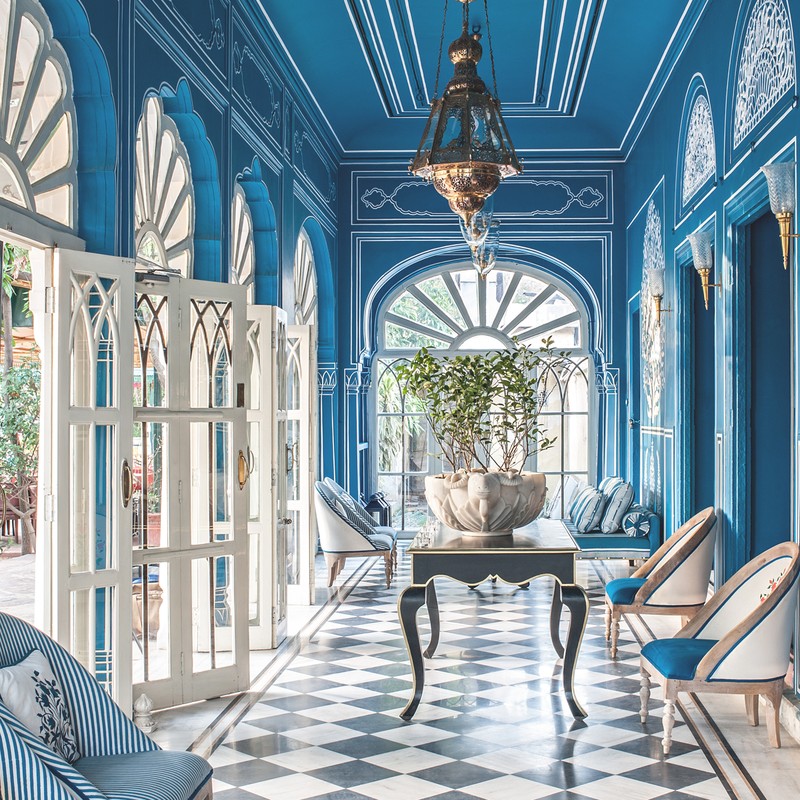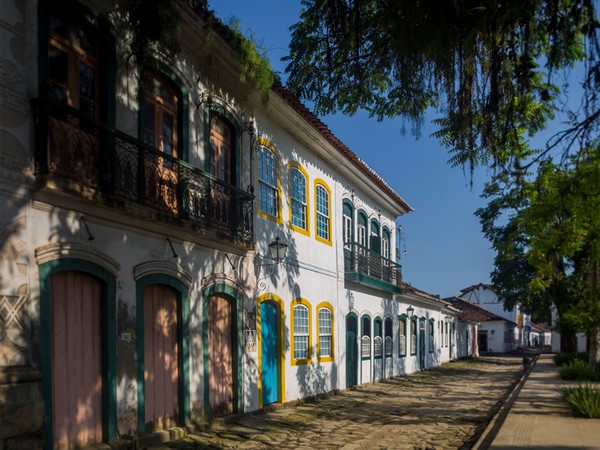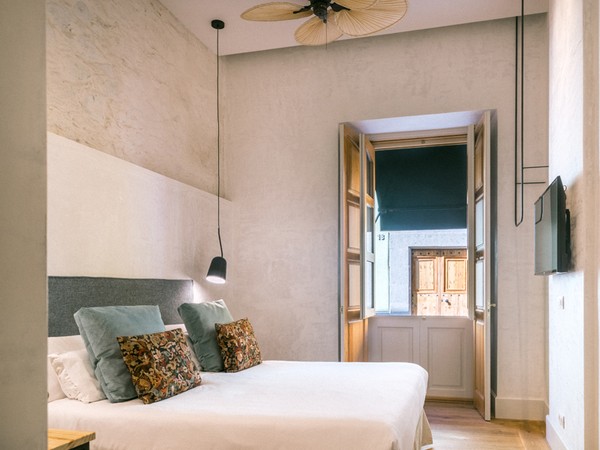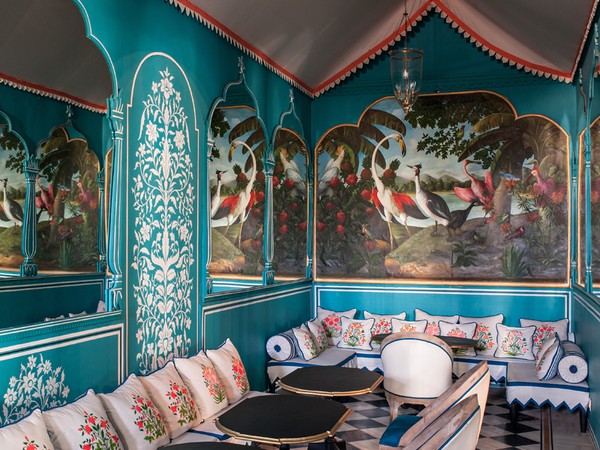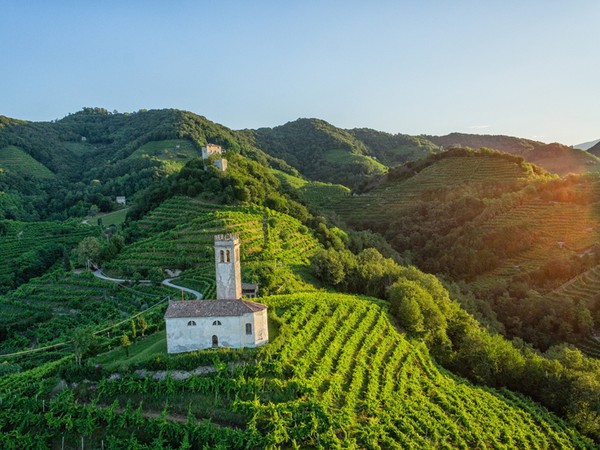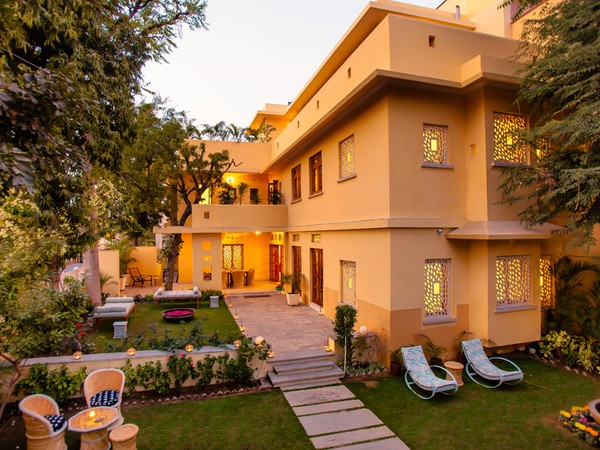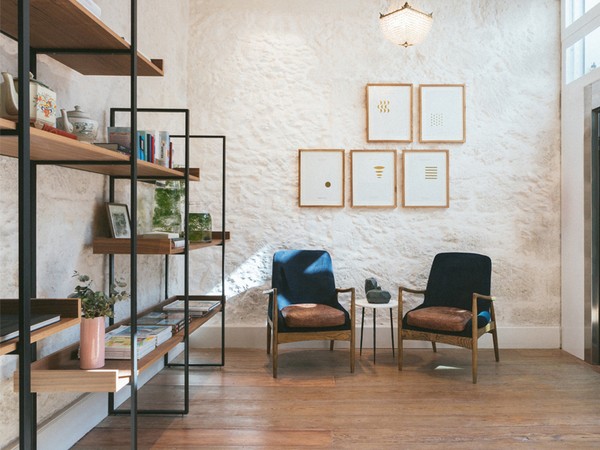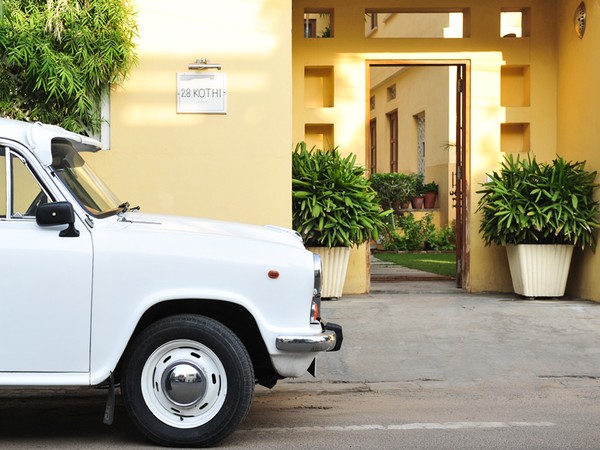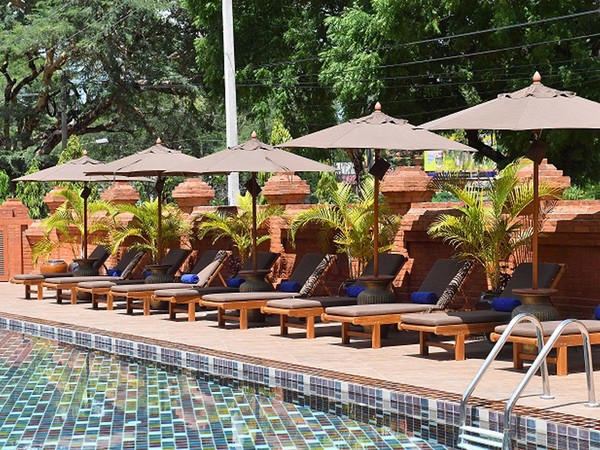6 New World Heritage Sites You Need To Visit
Jaipur, India
Believed to be India’s first planned city, Jaipur dates back to 1727, its historic grid layout carved around large public squares. These squares are still the heart of the city today: street stalls crowd the space, the cries of hawkers and the scent of freshly brewed chai filling the air. Beneath the bustle of daily life, an ingrained elegance hums through Jaipur. It is the ‘Pink City’ for good reason: intricately sculpted facades are a sweep of coral and blush hues. Don’t miss the flamboyant City Palace, the honeycombed Hawa Mahal and, just beyond the city’s reaches, the magnificent Amber Fort.
Stay: 28 Kothi
Tip: Enjoy a drink at Bar Palladio, with its blue-washed interior and candle-strewn terrace.
Le Colline del Prosecco di Conegliano a Valdobbiadene, Italy
After more than a decade of lobbying, Veneto’s historic Prosecco region has recognised by Unesco. In the foothills of the Alps, the vine-draped slopes between Conegliano and Valdobbiadene have been etched with centuries of viticulture. They are latticed with ‘ciglioni’, small plots of vines grown on narrow terraces that date back to the 17th century. Pay your respects by taking a tasting tour along La Strada del Prosecco, Italy’s oldest wine route. Indulgence is a must here, so treat yourself to a driver.
Stay: Agriturismo Borgoluce
Tip: Stop off at Borgoluce – or even better stay at its guesthouse. This family-run vineyard has a farm shop and restaurant, and the buffalo mozzarella is dreamy.
Bom Jesus do Monte, Portugal
The dramatic hilltop pilgrimage site of Bom Jesus do Monte is a few miles outside Braga. This monumental site is a Baroque-infused Catholic ‘sacri monti’ (sacred mountain) that took more than 600 years to complete. What can be seen today is an intricate complex: a hilltop church encased in an ensemble of chapels, allegorical fountains and a 600-step staircase. The staircase is the site’s most striking feature: a zig-zagging 116m-long stretch of granite, its steps interleaved with gleaming white walls. The calf-searing climb up is worth the effort – at the top you can explore the church and admire the terrace’s sweeping views.
Stay: Pousada Mosteiro de Amares
Tip: Legs not up to the climb? Let the funicular whisk you up to the top instead – it’s a fun option for kids too.
Bagan, Myanmar
Bagan is a wonder to behold: a vast 26-square-mile stretch of dusty plain studded with hundreds of golden Buddhist temples, intricate frescoes and fascinating archaeological remains. Its heyday dating back to the 11th and 13th centuries, the ancient city was once the capital of Myanmar’s powerful Pagan empire. Unsurprisingly, Bagan has made its way onto the tourist radar – it’s set to become Myanmar’s version of Angkor Wat – so Unesco recognition comes at a good time, setting conservation targets for the site and keeping hotels outside the now-protected zone.
Stay: Ananta Bagan
Tip: Take a hot air balloon over Bagan at sunrise for magical views of the ancient city.
Paraty, Brazil
Backed by the rainforest-swamped Serra da Bocaina national park and lapped by the Atlantic ocean, the town of Paraty is blessed with one of Brazil’s most jaw-droppingly beautiful settings. An under-the-radar hideaway, it has been gradually attracting an artsy crowd – no wonder, the town is a painter’s dream. At Paraty’s core, a stunningly preserved historic centre blends 18th-century colonial architecture with cobbled streets and pastel-hued churches. This is a place to take it slow: stay in a low-key guesthouse, paddleboard through sleepy canals or sail off to one of the islands that stud the bay.
Stay: Pousada do Sandi
Tip: Take a guided hike up nearby Pao de Acucar do Mamangua for excellent views of the bays and islands.
Risco Caido and the Sacred Mountains of Gran Canaria, Spain
Deep in Gran Canaria’s mountainous centre lies the Risco Caido, a fascinating archeological site and also the name for this dramatic region of ravines, volcanic formations and sheer cliffs. The Risco Caido is etched with traces of Gran Canaria’s ancient inhabitants and the pre-Hispanic culture that evolved on the island. The rugged mountain-scape is scattered with prehistoric cave dwellings, granaries and cisterns, and is home to two sacred temples thought to have belonged to a cult that worshiped the stars and Mother Earth.
Stay: Veintiuno
Tip: Hire a car so you can zip around the island. Culture lovers should head to Las Palmas, while there’s plenty of golden sand on Gran Canaria’s fringes for a beach day or two.
DISCLAIMER: We endeavour to always credit the correct original source of every image we use. If you think a credit may be incorrect, please contact us at info@sheerluxe.com.
